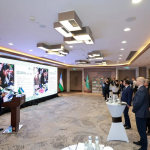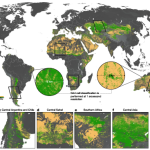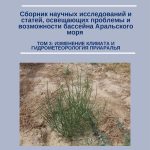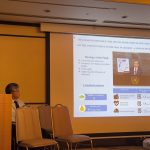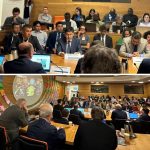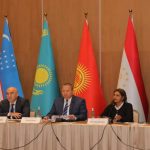The joint UNDP programme in Uzbekistan and the multi-Partner trust Fund for human security applies integrated planning, assesses the chain of causes and instabilities of target communities, establishes baseline indicators and develops human security indicators that reflect the realities of those affected by the Aral sea disaster. As part of a joint programme to address the security needs of people affected by the Aral sea disaster, the project envisages an expedition to monitor the arid areas of the Aral sea.
With the financial support of UNDP, an expedition to study the saline lands of the Aral sea was organized in Uzbekistan, together with IICAS and SIC ICWC. Deputy Director M. Ganiev and head of the laboratory K. Idirisov take part in this expedition from the IICAS to perform the duties of preparing a research program for the development of forestry, collecting initial information, including planting dates, types and methods of reforestation, based on materials from forestry and preparing sites for planned forest crops. According to the information received from M. Ganiev, groups of researchers today have located their camp near the artesian well and passing more than 100 km a day, were able to explore 65 thousand hectares of the South-Western part of the drained bottom of the Aral sea. One team, consisting of a Forester, an ecologist and a botanist, studies the vegetation, its variety and prepares a unique herbarium of these species, as well as studies the state of artificial plantations and prepares new areas for planting. Hydrogeologist J. Uzakbaev measures the groundwater levels. In parallel, a group of soil scientists headed by G. Stulina determine the state of the soil cover and during the week laid 6 soil sections and conducted a description of soil profiles.
The work of the expedition continues.
[metaslider id=”954″]


